Last-Minute NYC Holiday Gift Guide 🎁
We’ve created a holiday gift guide with presents for the intrepid New Yorker that should arrive just in time—


Last week Untapped was given an exclusive tour of the FDR Four Freedoms Park, including the famous “Room” at the tip of Roosevelt Island. Back in March, we took a tour just after the granite blocks were delivered and there has been quite a bit of earth moving since then. We also got to get up close and personal with the ruins of the smallpox hospital this time.
The new Southpoint Park had just opened the day before and a few people were there to check it out and take a stroll despite the heat.
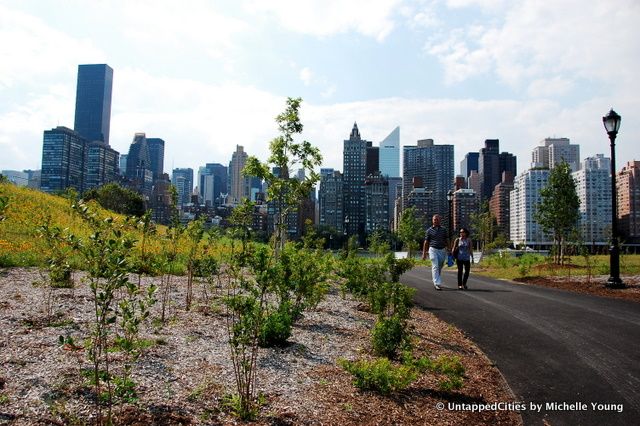
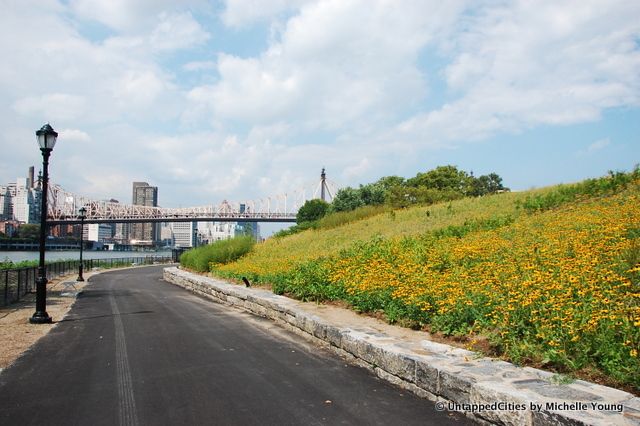
Before we get to the smallpox hospital ruins, let’s talk about “The Room,” the famous centerpiece of the FDR Four Freedoms Park designed by architect Louis I. Kahn in 1973, a year before he died. Regardless of how one feels about it aesthetically, gazing from the shores of Manhattan and Queens, it’s quite pleasant inside The Room. The views of the East River and of Manhattan are stunning and there’s a nice breeze, even on a hot day.
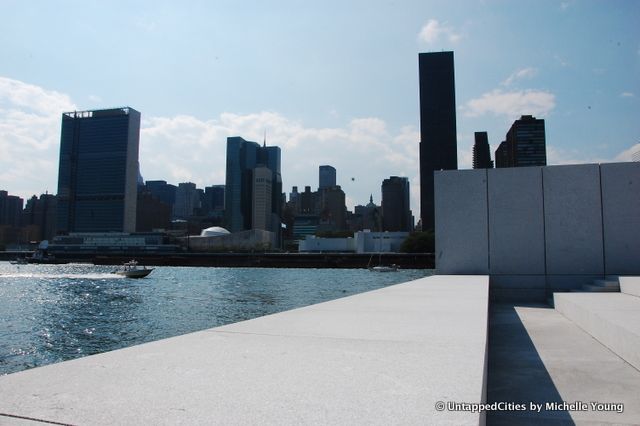
The memorial stands out design-wise because it has the gravitas of a national monument in Washington D.C.–the white granite, the uber clean lines and the immense blocks. But New Yorkers like urban design to be contextual, especially our parks. Monumentality seems reserved for the architecture of commerce and more recently, designer residential buildings. Perhaps it stems from a belief held by residents that New York is built from the people up, not from the architecture down.
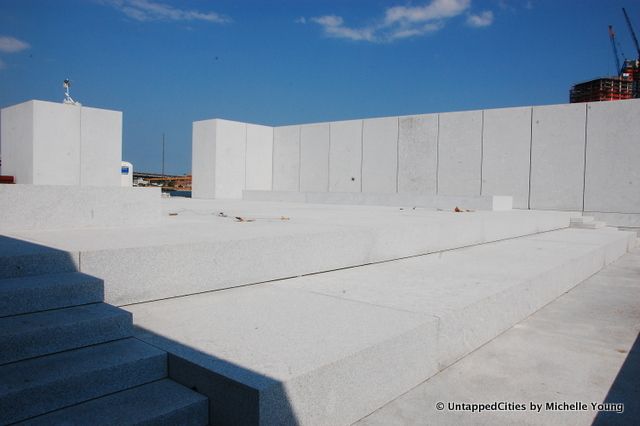
The FDR Four Freedoms Park is not intended to be contextual, as evidenced from its location at the tip of Roosevelt Island to its strongly linear plan, consciously directing visitors towards the bust of FDR. The tree-lined park is going to be elevated on a granite platform and enclosed by walls on both sides. Like the memorials in our nation’s capital, we are meant to reflect in it. In this case, to reflect upon the democratic ideals of the Four Freedoms–freedom of speech and expression, freedom of worship, freedom from want, and freedom from fear–and the legacy of FDR.
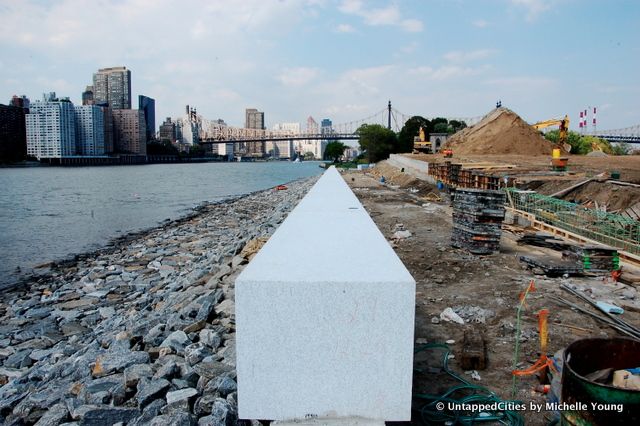
I left thinking that perhaps the critiques of the design were rooted in its conception as a park and that actually, it was rather bold to construct a memorial in New York City dedicated to something beyond the recent past. And that maybe the message of Four Freedoms Park is becoming more timely as we battle more crises that undermine the roots of the American dream.
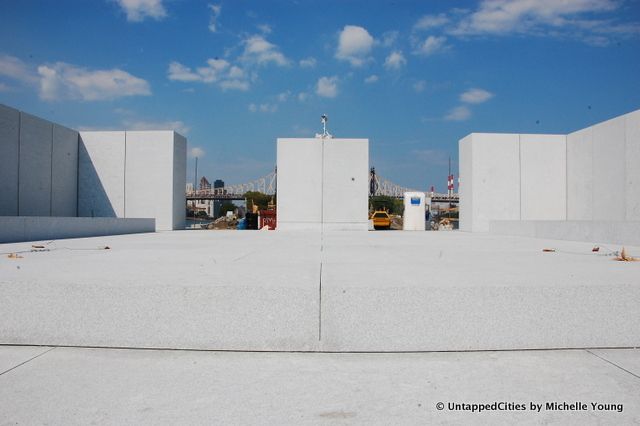
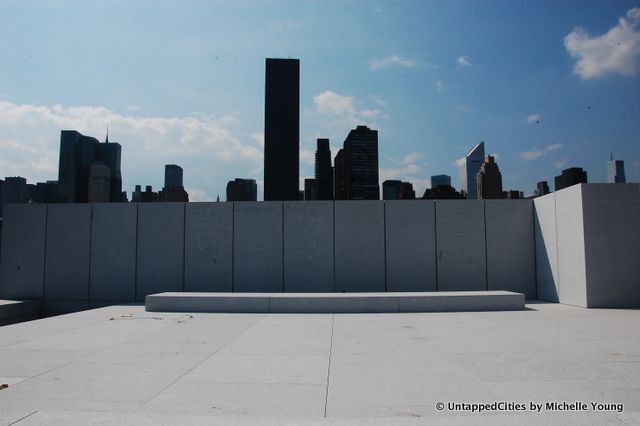
There is a lightness when you stand inside the room that comes from small separations between each of the granite blocks:
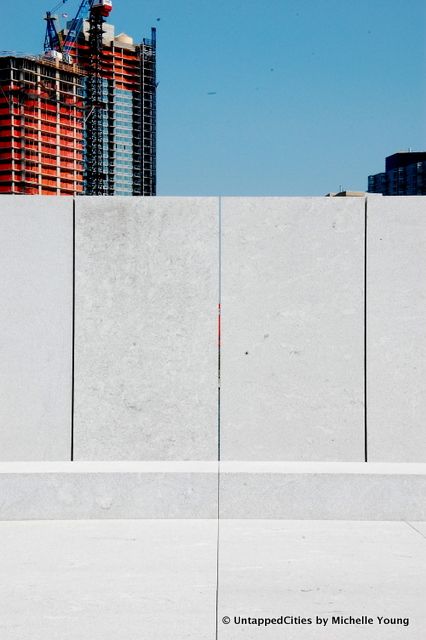
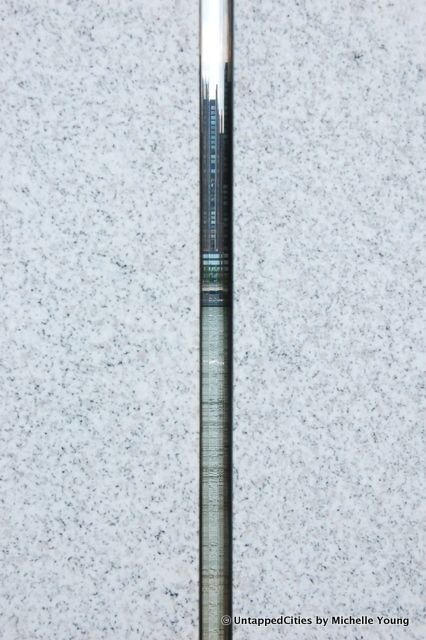
A simultaneous contrast and link between “The Room” and the Manhattan skyline behind it:
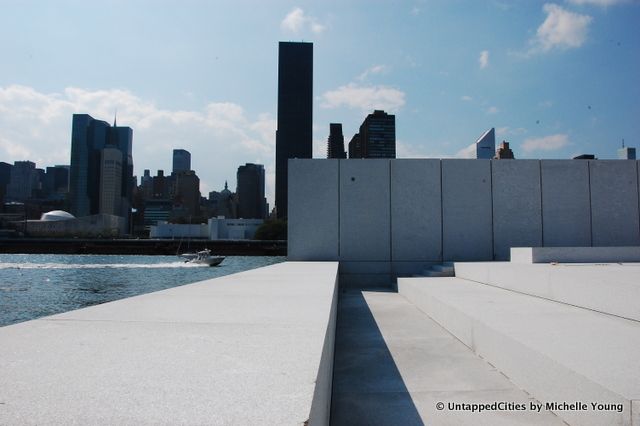
The granite has been finished in different ways depending on the side of the block and its location in the Room. To give you a sense of scale:
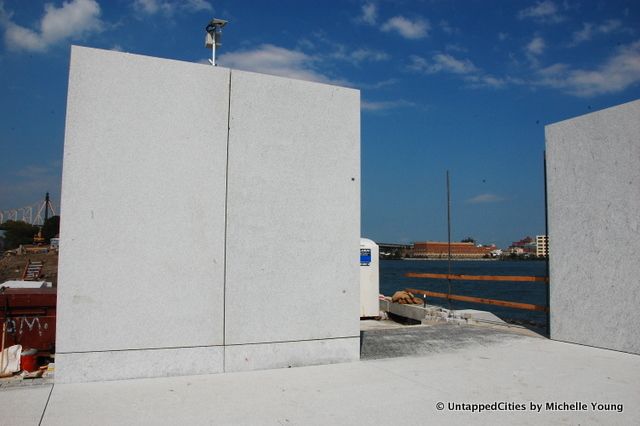
The riprap–the rocks along the shore–form an equally important part to the design of Four Freedoms Park:
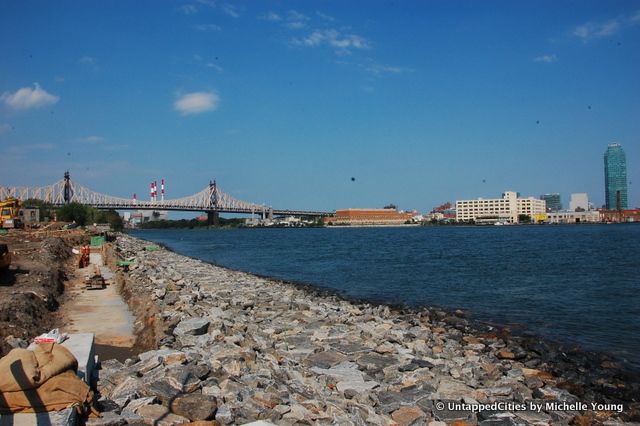
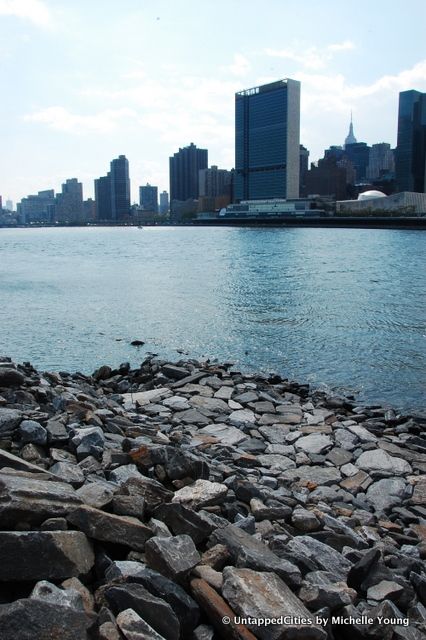
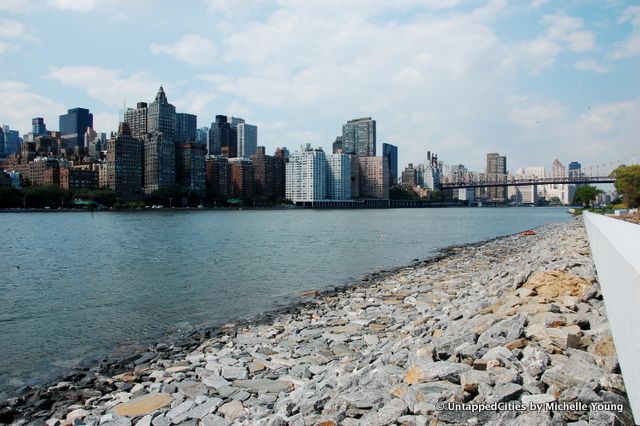
A final look at The Room at high tide:
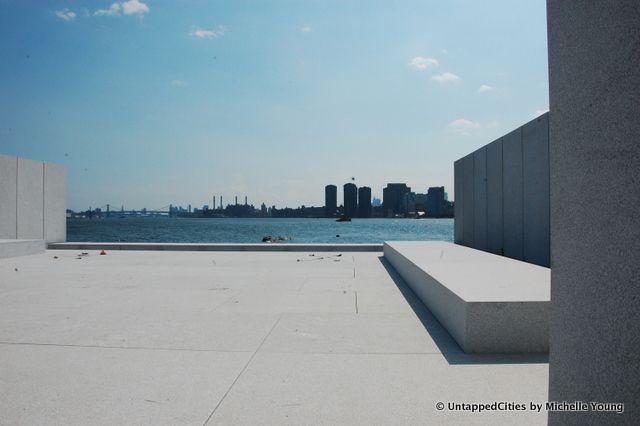
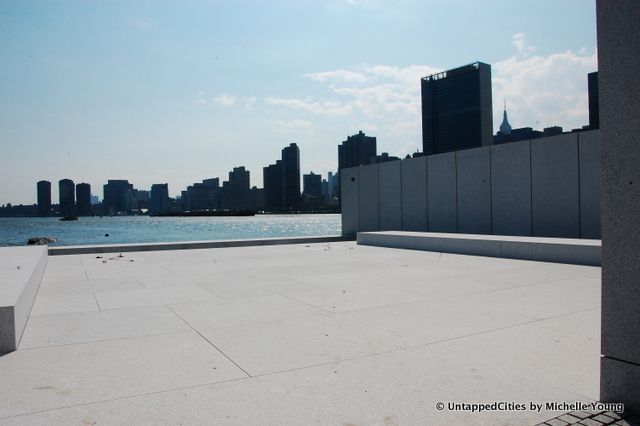
New Yorkers have a history of coming to love the monumental architecture they once hated: the Empire State building was derided for destroying the original Waldorf-Astoria hotel and the story of the original World Trade Center is now in the annals of history. There have been extreme opinions on the FDR Four Freedoms Park on both sides, and it seems only time will tell.
For now, construction is slated to be finished in September 2012. The Roosevelt Institute is still looking for some funds to complete the park and to perhaps rehabilitate some of the smallpox hospital:
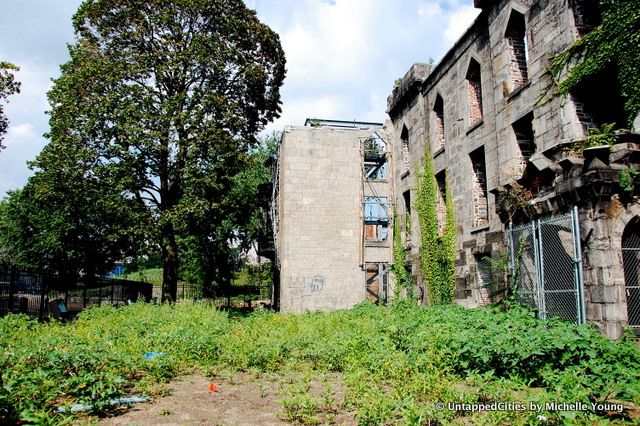
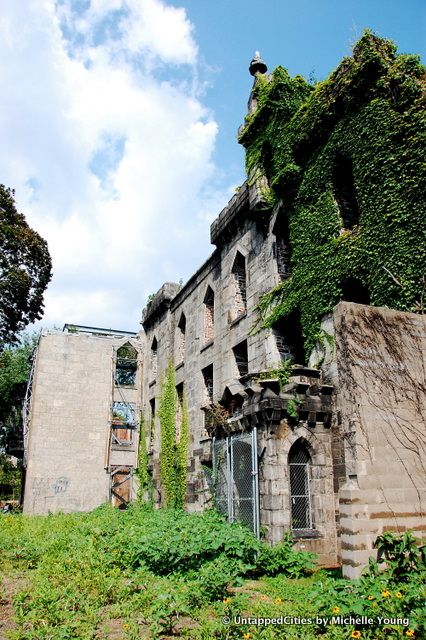
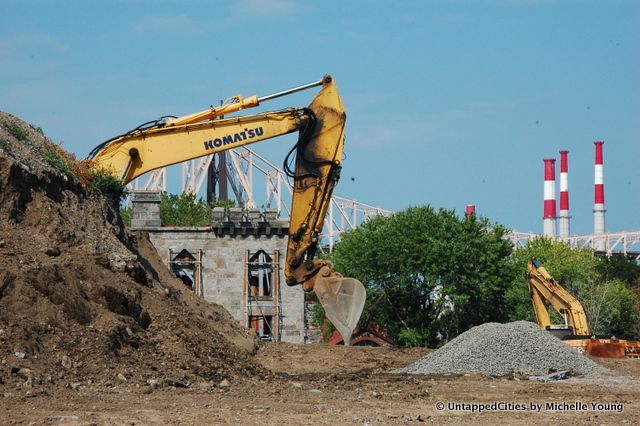
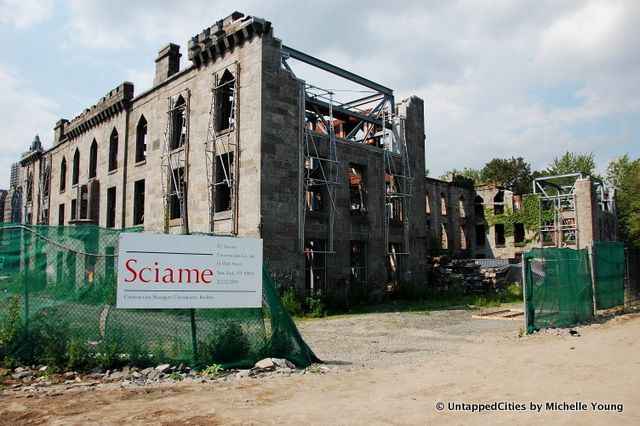
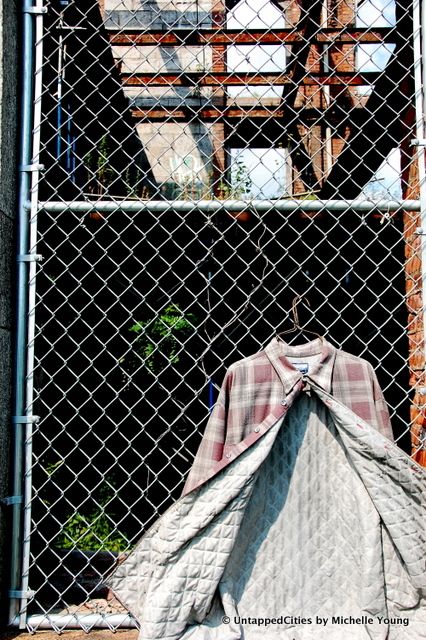
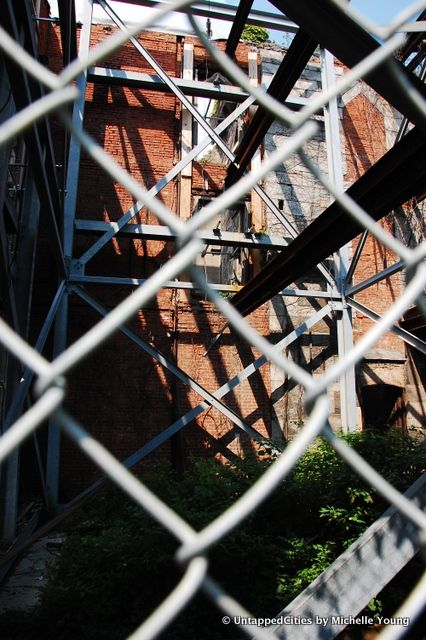
The contrast between the ruins and the development just behind in Long Island City is striking:
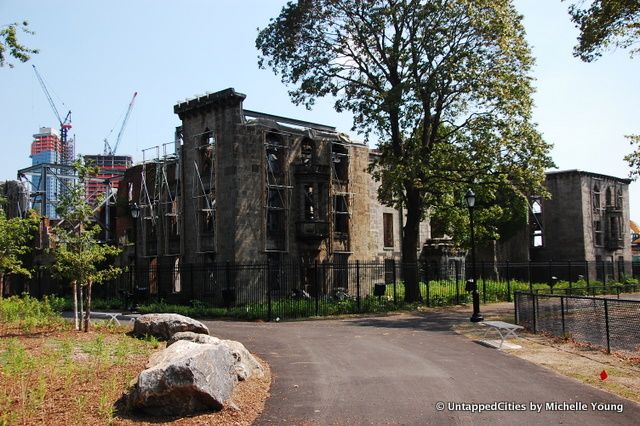
For more photographs of the park in progress, check out our previous tour of FDR Four Freedoms Park and our Facebook page. Support the Roosevelt Institute and check out the renders of what the park is planned to look like completed here.
Get in touch with the author @untappedmich.
Subscribe to our newsletter